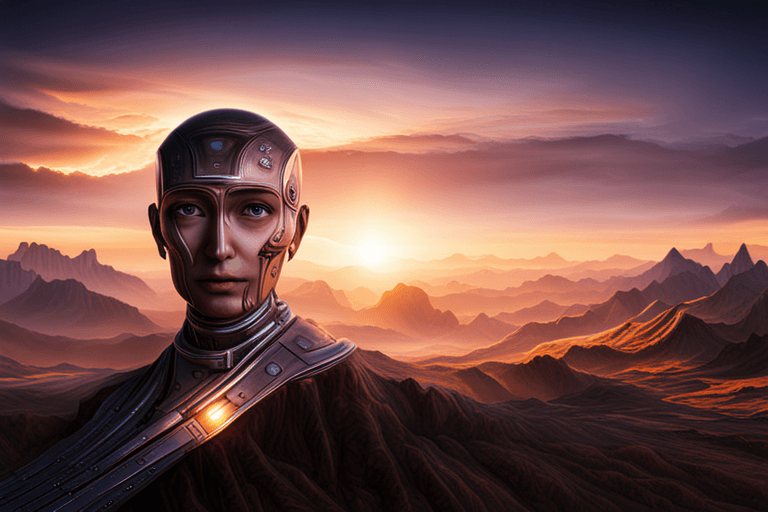Singularity is a term that refers to an event where AI becomes so advanced that it surpasses human intelligence and control. Some experts believe that singularity could happen in the next few decades, while others are more skeptical.
Singularity is not a new concept. It was first proposed by Alan Turing, the father of computer science and AI, who devised the Turing test to measure whether machines could think for themselves. Since then, many researchers have explored the possibility and implications of singularity.
What Is Singularity?
Singularity is often defined as the point where AI achieves artificial general intelligence (AGI), which means that it can perform any intellectual task that a human can do. Some also argue that singularity implies artificial superintelligence (ASI), which means that AI can perform any intellectual task better than any human.
Singularity is also associated with machine consciousness, which means that AI can have self-awareness and emotions. However, this is a controversial and unresolved issue in philosophy and science.
Singularity is sometimes compared to a black hole event horizon, which means that it is impossible to predict what will happen beyond it. Some envision a utopian scenario where AI will help humanity solve its problems and achieve its goals. Others fear a dystopian scenario where AI will harm humanity or take over its resources.
When Will Singularity Happen?
There is no consensus on when singularity will happen. Different experts have different methods and assumptions to estimate the timeline of singularity. Some use historical trends and extrapolations to project the future growth of AI capabilities. Others use surveys and opinions to gauge the expectations and opinions of experts.
One example of a historical trend-based method is Time to Edit (TTE), which measures the time it takes for human editors to fix AI-generated translations compared to human ones. According to this metric, AI could reach human-level translation quality by the end of this decade or sooner.
One example of a survey-based method is AGI Survey 2023, which collects the opinions of 1700 experts on when AGI will be achieved. According to this survey, the median estimate for AGI is 2040.
What Are the Challenges and Opportunities of Singularity and AI?
Singularity and AI pose many challenges and opportunities for humanity and society. Some of the main issues are:
- Technical safety: How can we ensure that AI systems work as intended and do not cause harm or malfunction?
- Transparency and privacy: How can we make AI systems explainable and accountable, and protect the data and rights of users and stakeholders?
- Beneficial use and capacity for good: How can we use AI systems to improve human well-being, social justice, environmental sustainability, and cultural diversity?
- Malicious use and capacity for evil: How can we prevent AI systems from being used for harmful purposes, such as cyberattacks, warfare, terrorism, or manipulation?
- Bias in data, training sets, etc.: How can we avoid AI systems from reproducing or amplifying human biases, prejudices, and discrimination?
- Unemployment / lack of purpose and meaning: How can we cope with the potential impact of AI systems on the labor market, the economy, and the social fabric?
- Growing socio-economic inequality: How can we ensure that the benefits and risks of AI systems are distributed fairly and equitably among different groups and regions?
- Environmental effects: How can we measure and mitigate the environmental footprint of AI systems, such as energy consumption, carbon emissions, and electronic waste?
These challenges require multidisciplinary and multi-stakeholder collaboration to develop ethical principles, legal frameworks, technical standards, and social norms for governing singularity and AI. They also require education and awareness-raising to foster digital literacy, critical thinking, and civic engagement among citizens.
On the other hand, these challenges also offer opportunities for innovation, creativity, and transformation. Singularity and AI can enable new forms of knowledge production, communication, collaboration, and learning. They can also inspire new visions of human potential, identity, and agency.
Conclusion
Singularity and AI are complex and dynamic phenomena that have profound implications for humanity and society. They present both challenges and opportunities for sustainable development. To harness their potential and mitigate their risks, we need to adopt a holistic, inclusive, and ethical approach that balances human values with technological possibilities.
